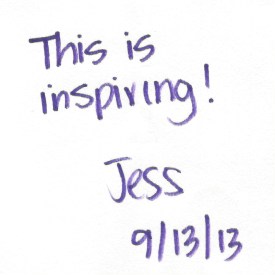Finding Your Authentic Self
Maya Angelou famously said, “I've learned that people will forget what you said, people will forget what you did, but people will never forget how you made them feel.”
This is one of my favorite quotes because it reminds me that each one of us leaves a mark on those that we interact with. And it leads to another more personal question: What kind of mark am I leaving on others?
Over the past year, I have had contact with many people who either want to become happy or want to positively affect others. Both are worthy pursuits that on the surface seem to be goals independent of the other. But they are, in fact, inseparably connected. And more, they are manifestations of authenticity.
So, what is authenticity and how does one achieve it? Authenticity is a person’s understanding the true self, genuinely accepting his true self, and then sharing that true self with others fearlessly.
Keep in mind that if living authentically were simple, everyone would be doing it. Acquiring a true understanding of self cannot not be accomplished in a weekend, nor is it a destination in its own right. Rather it is a constant journey, an evolution of depth perception and perspective fueled by our experiences. The caveat is that in order to be effective, the process requires HONEST inquiry coupled with a willingness to forgive, accept, and love one’s self.
As I continue my own journey towards a better understanding of self, I have come to believe that understanding one’s self is the first, and potentially most problematic step on the road to authentic happiness. Why? In order to share our true self, we must first understand who are true self is. And there in lies the problem. I think we can all agree that honestly acknowledging why we behave the way we do can be uncomfortable and overwhelming. After all, self deception (varying degrees of lies you tell yourself to make you feel better about a perceived fear or failure) exists to protect us from having to face uncomfortable truths.
Honest assessment is made more difficult because we each have a subjective perception of past events, which is further complicated by the critical inner voice born of our deepest darkest insecurities. For many of us, it is our inner voice that is the most critical, fearful, and unforgiving. It perpetuates untruths, holds us hostage, and halts our individual progression towards becoming authentically happy.
The process of honest assessment is difficult-downright painful, time consuming and may require the help of a good therapist but the resulting reward is priceless. Forgiveness of self often leads to forgiveness of others, compassion for self leads to compassion for others, and acceptance of self leads to acceptance of others. In the end, you are positively affecting the world and becoming authentically happy.

